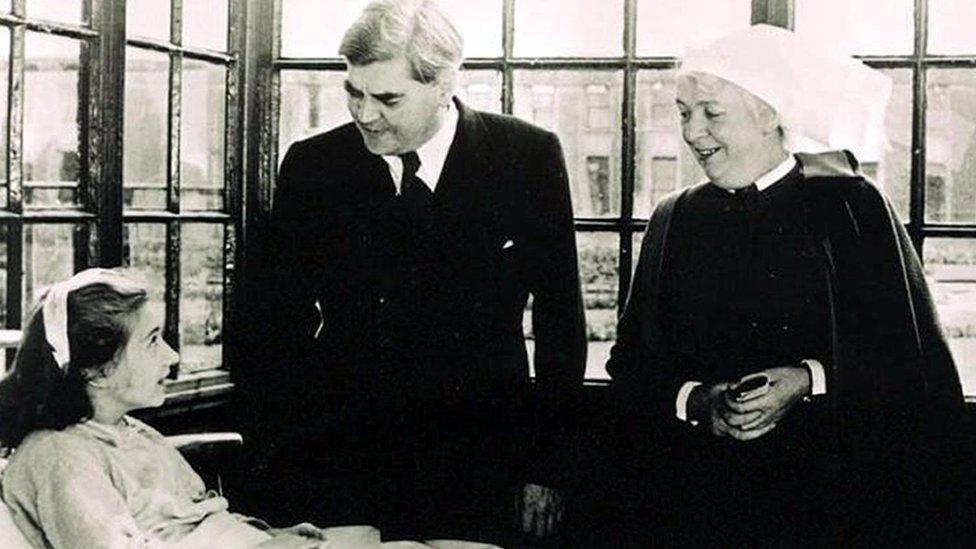General election 2019: Why the NHS is still an election issue in Wales
- Published

Why are the political parties talking about health on the election trail in Wales, even though it is devolved?
The truth is nobody standing in this election in Wales will end up in charge of the NHS here.
But that doesn't stop political parties, even when on the campaign trail in Wales, talking about health.
Here are four reasons why it's still an issue:
1: The NHS is a priority for voters
Countless opinion polls show health and the NHS to be towards the top of the list people's priorities - in any election. So even if the parties are announcing pledges that would more appropriate for an assembly election - like pledges to recruit more NHS staff (as Plaid Cymru are making on Wednesday), they still want voters to know about them. They want to strike a chord.
2: Money matters
Whoever forms the next UK government will have to decide on how much money they'll give to the NHS in England.
And the main UK parties have been at loggerheads about who'll be more generous.
The relevance for Wales is that the more money Westminster allocates to the NHS - and other public services like schools and councils in England - the more money will come from London to the Welsh Government's coffers too.
However, it'll be up to the Welsh Government how exactly to spend the extra cash.
But it's also true that if spending is cut in England overall on the services that are devolved in Wales, then the Welsh budget shrinks. That's how the so-called Barnett formula works.
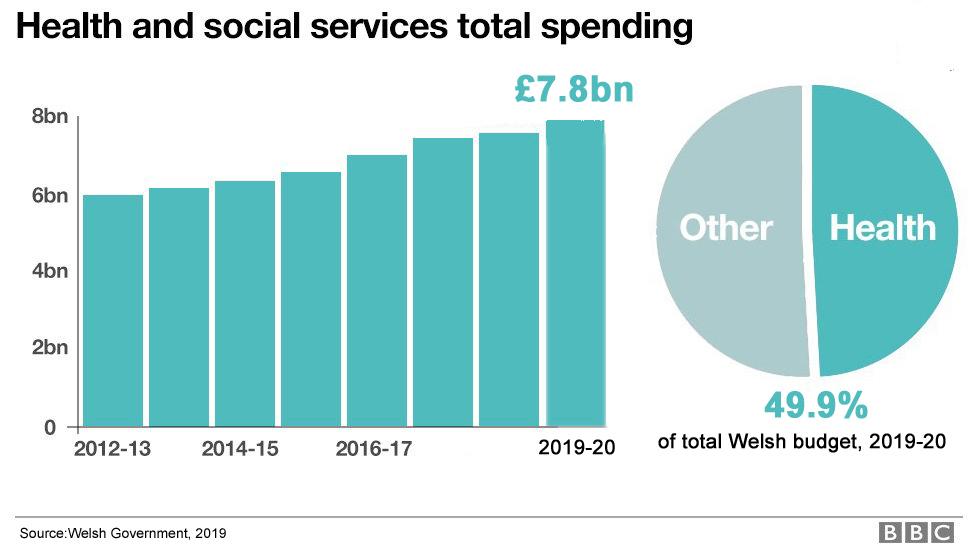
How big is the NHS in Wales?
There are more than 79,000 people directly employed by the NHS in Wales and it is estimated there are 20m patient contacts a year, with more than 1m visits to hospital emergency units alone.
Spending on core NHS Wales services is £7.4bn out of a Welsh Government health and social services revenue budget of £7.8bn this year.
That total health and services spend is nearly half of the total Welsh budget, but it has been predicted by one leading health economist that it will need to take two-thirds of spending by 2048 if predicted demand increases.

3: It's a question of trust
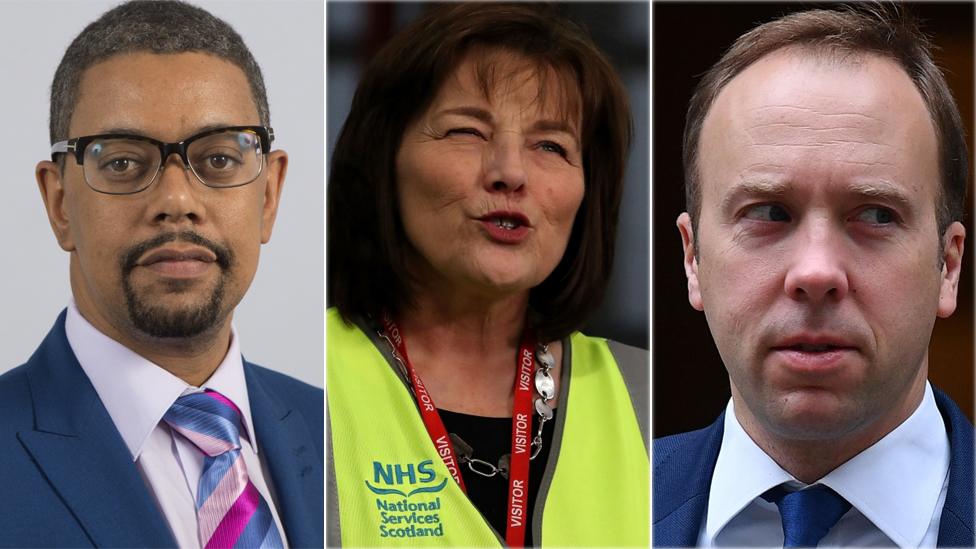
The health ministers running the NHS in Wales, Scotland and England
Every party during an election wants to knock their opponents. So the Conservatives will want to try to make out that their main political rivals - Labour - will do a bad job if they end running the health service in England.
So it's not unusual to hear criticism for example that waiting times for A&E under Labour in Wales are longer than in England.
But you won't hear those same Westminster politicians talking much about how much better A&E waiting times are in Scotland.
And according to some experts comparing overall NHS performance in Wales with England is a bit like comparing apples and pears - because Wales has an older, poorer and sicker population.
Now, at the same time, those who are fighting the Conservatives - Labour and the Lib Dems - will want to talk about what they see as potential threats to the NHS's future - such as risks of any future trade deal with the Trump administration, or how proposed tax and pension changes could end up deterring senior doctors from working extra shifts., external

4: Brexit
Each of the parties will want to use speculation about what impact Brexit has on the NHS to justify their own stance on the issue.
With some describing it as a huge threat, others, like the Brexit Party, see it as a big opportunity.
In between elections, many Welsh politicians complain about a lack of awareness amongst voters about what policy areas are devolved and which are not.
They talk of the public being confused about which government is responsible for what.
The truth is that parties in Wales talking about health in a UK election arguably doesn't help clear things up for voters.
- Published13 November 2019

- Published7 November 2019

- Published4 July 2018
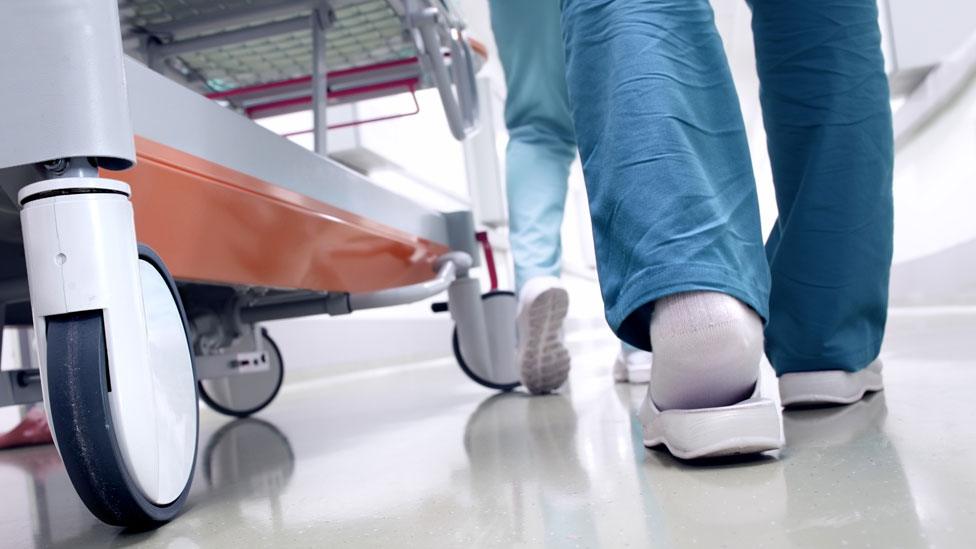
- Published2 July 2018
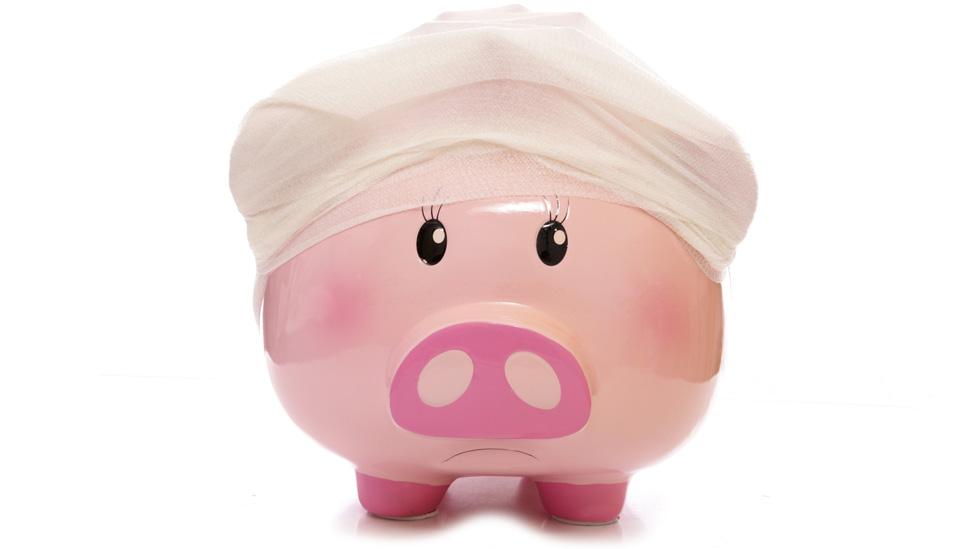
- Published26 June 2018
